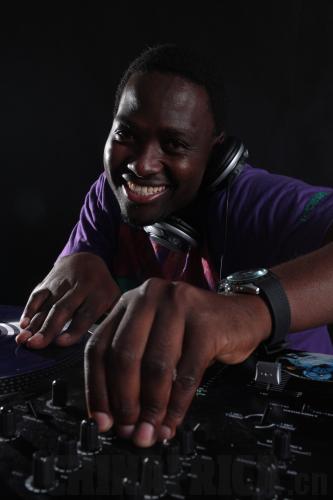| 
How did you get a job with CRI?
I got my job through the Tanzanian embassy. CRI was recruiting at that time. They got in touch with the embassy to post an ad on the embassy website. So when I saw it, I went directly to CRI. They talked to me, and they liked me. This is my first professional job in China.
Besides hosting music programs, I also do teaching programs. We broadcast Chinese lessons for our East African listeners, who seem to enjoy them a lot. I also do interviews. I carry a recorder everywhere I go, and record anything I think will be useful for either my programs or any other programs produced by our department.
How do you deal with cultural differences at work?
I can speak Chinese, so my colleagues and I understand each other very well. When you learn somebody's language, you also learn about their culture. Their culture becomes a part of your life. So when you work with or speak to them, you adopt their culture, and the cultural gap is reduced or disappears completely. So when we are at work we don't feel like there are Chinese and Tanzanians. We have learned each other's cultures, so there is no reason for such a divide.
I love my work environment and the people I work with. One thing I experienced and liked is that when we work, we work. We don't waste time chatting. But when we xiuxi (rest) we rest. In China, when people are at work, everyone concentrates on what they are supposed to be doing at that time.
What's the best part of your job?
Working for CRI is great, and I love every minute of my workday. The best part is that I get to do something I love and do it to the best of my ability. The music and entertainment industry has always been a part of my life. Since childhood I have always wanted to work in radio, TV and media. In 1996 my mother bought a Sony video recorder and gave it to me, saying I was the older child, and should try to learn how to use it. She encouraged me to shoot things here and there. I used to take some kids who lived on our street and have them act out a TV script that I wrote with my younger brother. He turned out to be a very good song writer and is now studying in Shanghai. So you can see that back then I really wanted to be a movie director and work in media. Working in radio is like following my dreams.
Has working in China changed your life?
When I first came to China I was only 20 - barely out of my teens. You could say that I grew up and became a man in China. I learned about China's language, culture and other aspects of life here. This made me see life differently from how I used to before I moved here. Life in China is different from my home or any other countries. China has a large population and everyone works or studies so hard to keep from being left behind.
At CRI, I have learned how to produce different radio programs. This experience will be a huge help to me if I start my own radio channel or company in the future. Other than that, working in music has made me develop an interest in producing my own songs. I've already started working on this with three of my best friends here in Beijing.
What are your future plans?
I would really love to own my own radio station or recording company and record music and sound tracks. I recently started producing my own work. If I started a recording company it would be focused on helping those with talent be heard. I am also interested in dubbing movies. For example, I would love to translate movies filmed in Swahili into other languages and put them out there so that people all over the world can see that Tanzania and East African countries are home to a lot of talent. As for now, I am working on developing my own website (http://www.djmosy.com). I want to use my site to broadcast a live stream so that a larger audience can hear my work. This may also help me start my own radio station in the future. |